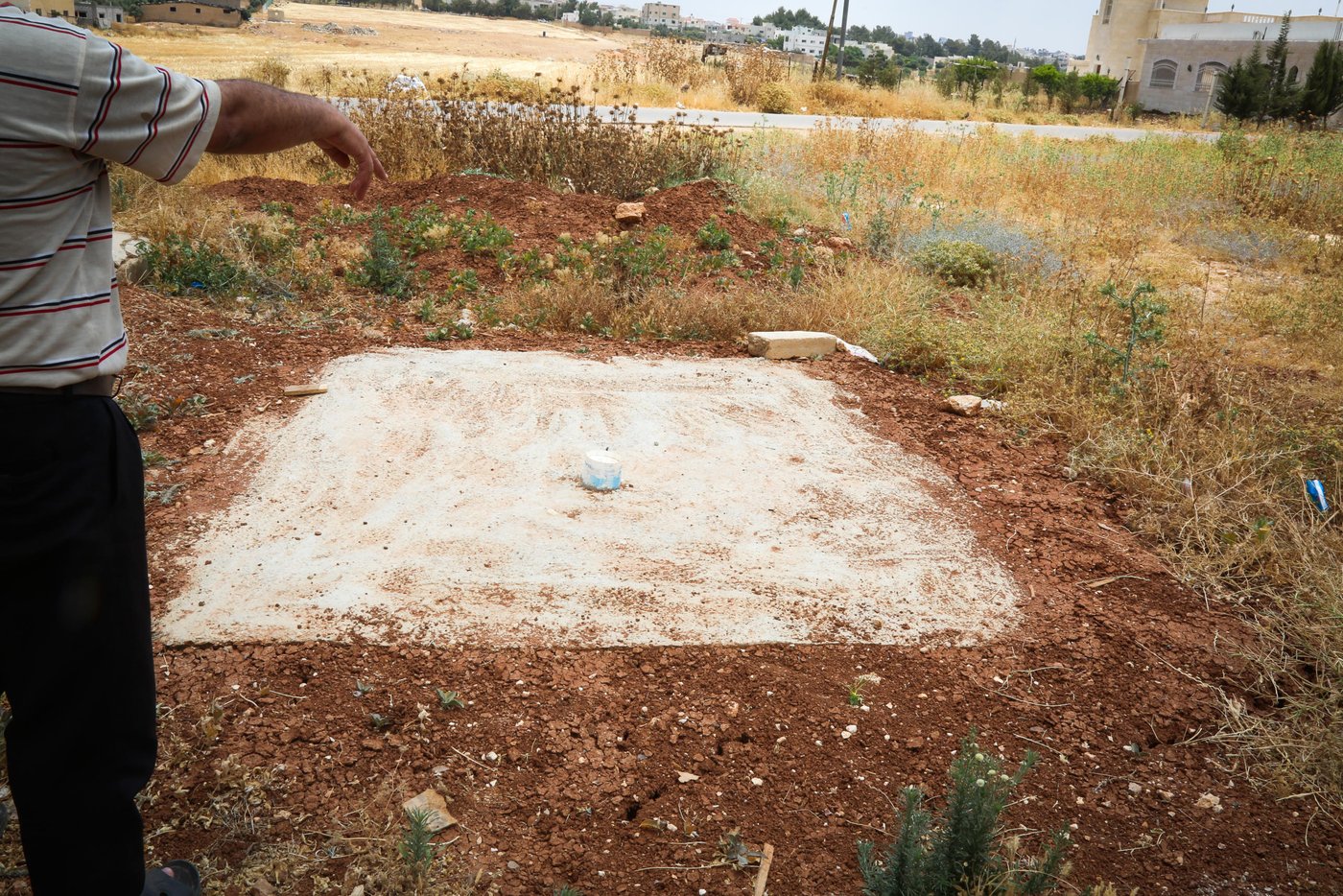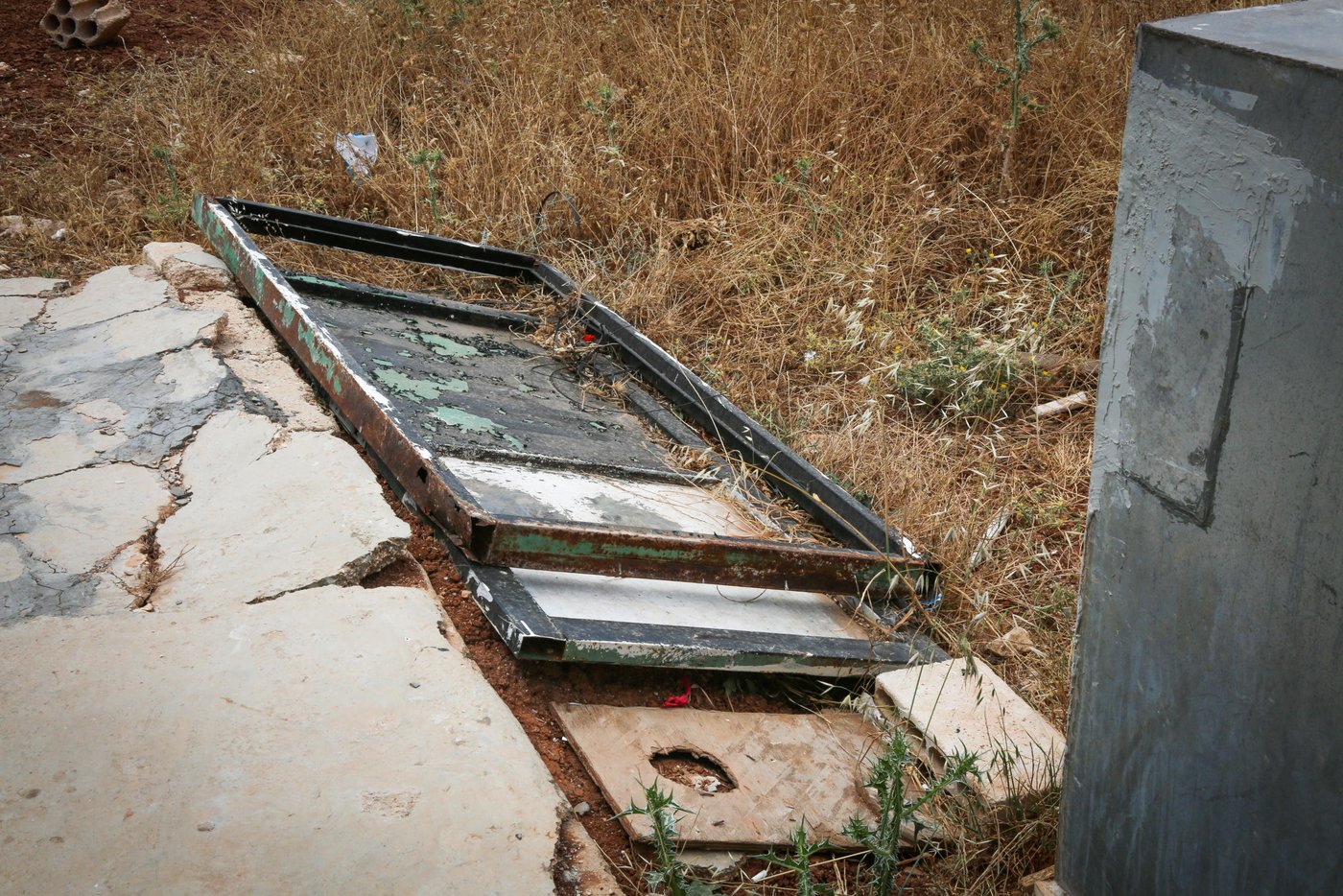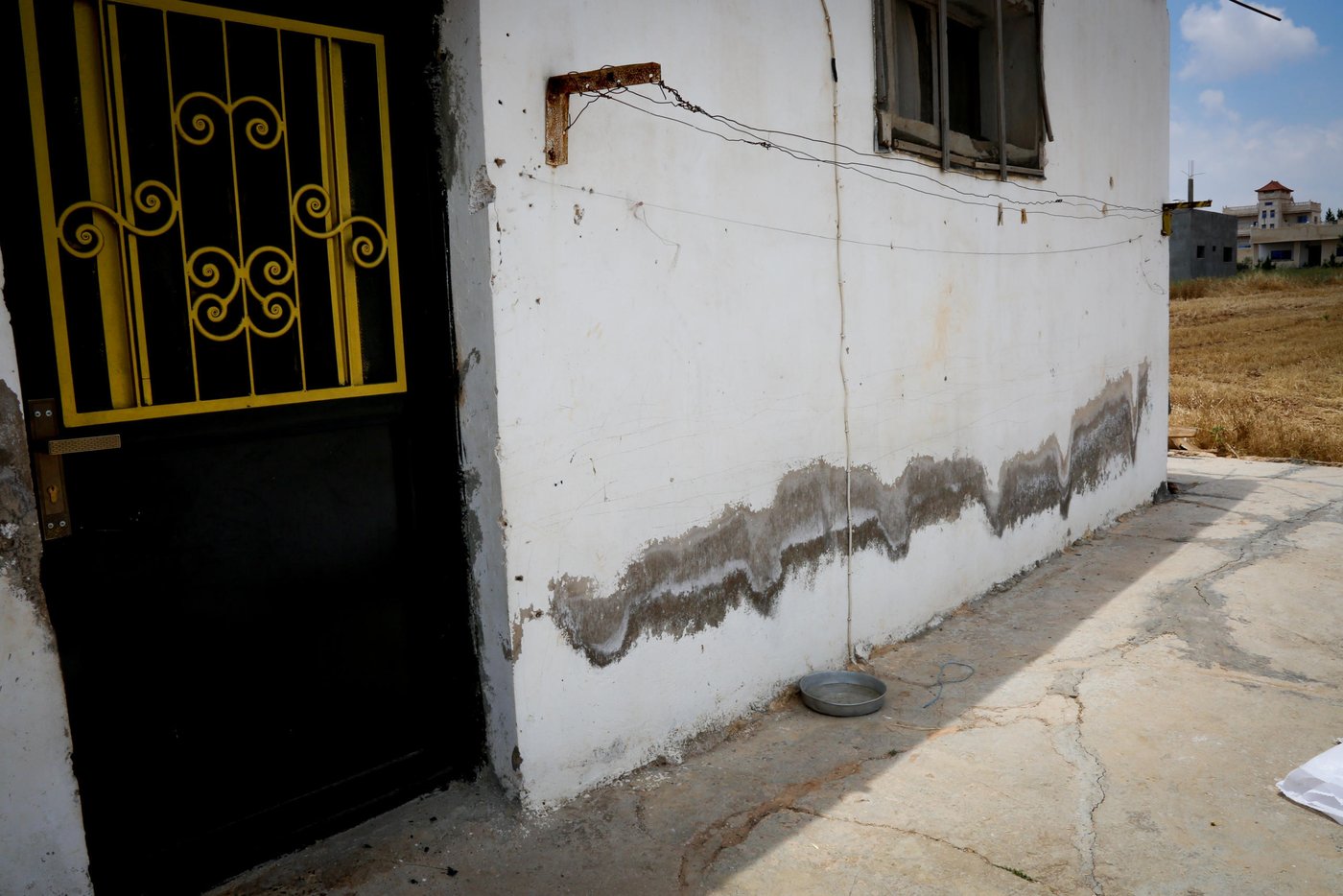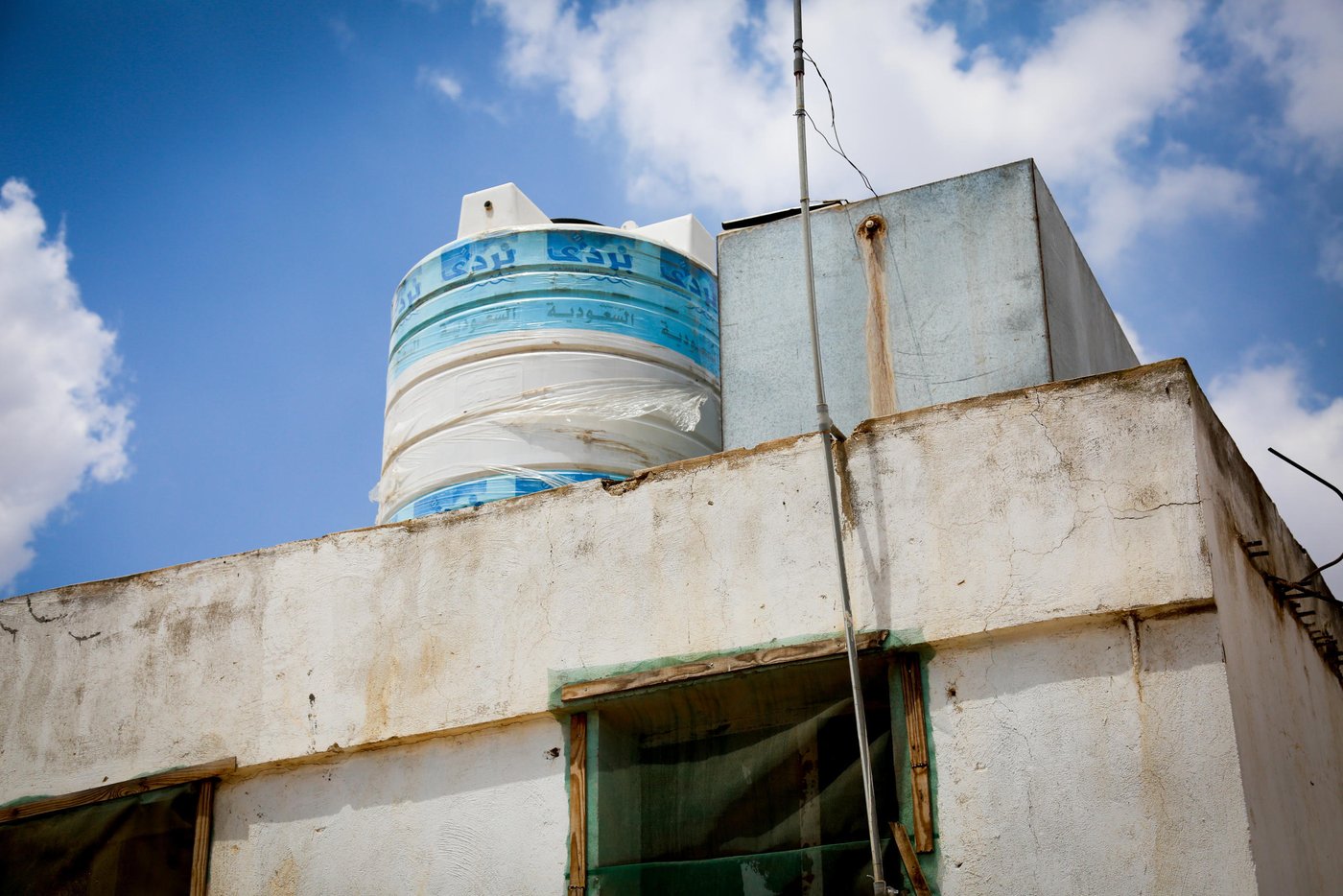Prior to the influx of Syrian refugees to Jordan, which began in 2012, many sectors of the Jordanian economy were already facing difficulties. The housing market was one of the worst affected. Rent inflation and the increasing demand for cheap housing led many refugees to move into garages, shops, basements and other structures that had not been designed for people to live in.
Abu Ayham, 42, and Um Ayham, 40, fled from Syria to Jordan in 2014. They spent the first night in Zaatari refugee camp. Then, a family member already in Jordan helped them to find housing in Ramtha, a city in the north of the country. Two months later, they moved into what would become their home for the next five years.
The septic tank was not working properly, and it was flooding into the house. It would have cost a fortune to repair it.Abu Ayham, 42
Septic waste and centipedes
For the past five years, Abu and Um Ayham have been living in a small brick shack-turned-home with their four children. Since then, they have endured living disconnected from the municipal electricity network and water services. Conditions were far from ideal.
“The septic tank was not working properly,” Abu Ayham explains, “and it was flooding into the house. It would have cost a fortune to repair it. We were going to have to let go of the house because of that.”
“We only had one water tank of two cubic metres for the whole family,” Abu continues. “Also, the main house door had an opening in the floor and was allowing bugs and snakes to come inside the house.”
“The children would find centipedes and other insects around the house. They were really scared of them,” Um Ayham adds.

Making the house fit for habitation
The family heard about the Norwegian Refugee Council (NRC) through friends and reached out to find out more about the services available to them. Shortly afterwards, NRC sent a team to meet the family and evaluate their situation.
“We were barely in contact with the landlord,” explains Abu Ayham. “At the beginning, he told us that we could renovate anything, but at our own expense. Unfortunately, when we eventually leave the house, we won’t be able to take any of these things with us. Any investment we make on the house benefits the landlord only.”
After evaluating the conditions and consulting the landlord and the family, NRC’s shelter team agreed to take care of some of the house renovations.
“Since the renovation, the situation has improved. We don’t have insects,” says Um Ayham. Abu Ayham continues: “The major thing was fixing the septic tank. Also, the water tank would not fill up completely, and we did not have enough water for the family. Now we have two tanks. This is good for the children.”

Three quarters live below the poverty line
Abu and Um Ayham’s difficult situation is more the rule than the exception in Jordan. The already struggling Jordanian economy and high unemployment rates have led to increased poverty levels among both Jordanians and refugees. Currently, 75 per cent of the Syrian refugee population lives below the poverty line and 54 per cent cannot afford to pay rent.
“We faced lots of problems in order to pay the rent, and this is the cheapest house we could find. People want to help, so they arranged some work for my husband. Our neighbours took us in, but we still struggled a lot to secure rent every month,” explains Um Ayham.
One of the main problems has been the lack of work opportunities. “We don’t have jobs,” says Abu Ayham. “Sometimes, I find work once or twice a week. I take whatever I can find. I have worked in construction and agriculture. Some people want to help, so they hire me to do small things, like taking care of their gardens. When I have the opportunity, I do it.”

Renovations in exchange for rent
In exchange for the renovations provided by NRC, the landlord agreed to give the family a six-month period rent-free. Moreover, once the period is over, NRC will continue to support the family with their monthly payments throughout the following year.
“We have got used to being here, although it is not 100 per cent comfortable for us. Luckily, with the renovations and without the burden of rent we are less worried and concerned. We feel comfortable psychologically. In the future, we want to have safety and security again,” explains Um Ayham.
“We don’t want anything from the world, only safety and comfort. We want to make sure that we have everything we need, that we have security in our life,” Abu Ayham concludes.


